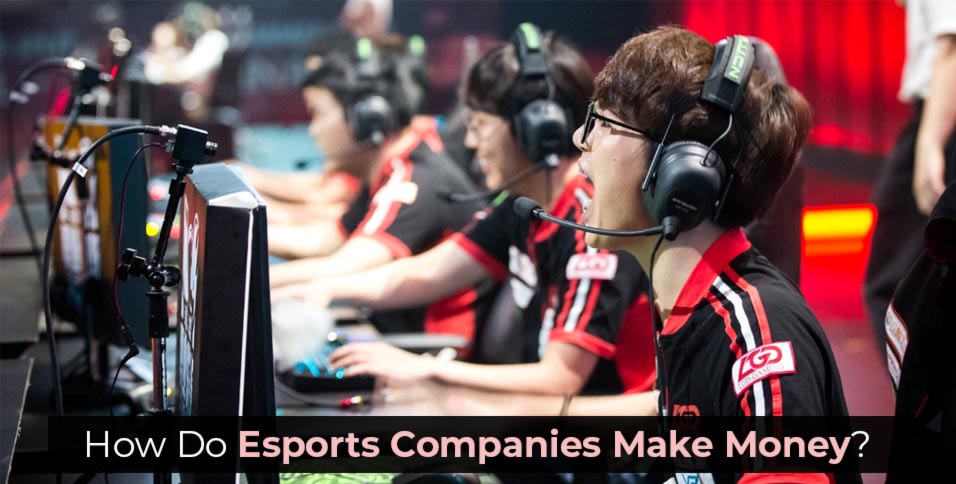The world of esports is interesting for gamers. Playing video games as a job and earning a stable salary from an esports team is now possible for players everywhere. But how do these teams make enough money to pay their players?
Esports teams come in all sizes and this affects how they make money. Smaller and newer teams might rely more on prize money from competitions. In contrast, bigger, well-established teams act like full businesses. They serve a larger audience and have many different ways to earn money. They earn more than any Nagaland lottery amount. So keep reading to know more.
Prize Pools
Many people believe that esports teams make most of their money from winning prizes but that is not the case. They do win some money but most of it goes to the players as bonuses. How much money the team keeps can change based on the game and the team itself.
For new esports teams, winning prize money is really important because they have not yet built a big fanbase to earn money in other ways. This is especially true in places like South Asia, Africa and Southeast Asia where they are still growing. So, while winning is good, it is not the main way teams usually make money.
Sponsorships
Esports teams earn money mainly through sponsorships with brands. Teams with many fans attract companies that want to reach young people. In return for promoting these brands, teams get paid. For example, Team Vitality recently renewed their deal with JBL Quantum and FaZe Clan has launched an energy drink with GHOST.
While specific amounts are usually not shared, these sponsorship deals can be worth a lot of money which range from thousands to millions of dollars. Sponsorships help teams grow and keep their fans engaged while providing brands a way to connect with a younger audience. It is a win-win situation for both the teams and the companies they partner with.
Merchandise Sales
Another way for teams to earn money is by selling official merchandise like jerseys, hats, t-shirts and sweatshirts. For example, the North American team 100 Thieves has focused on selling apparel and even made $2.5 million in one month from their clothing line.
When teams sell a lot of merchandise, it can also help them get better sponsorship deals. Some teams even partner with fashion brands like G2 Esports did with Ralph Lauren. When done well, selling merchandise can be a great way to earn money and promote the team’s brand.
League Partnerships
Teams are often connected to their games and have to make the most of the game’s popularity. Some leagues have changed from closed systems to more open formats which allow new teams to join.
When teams join established leagues, they often get a share of the money generated from those leagues along with additional support from the game publishers. For example, Riot Games shared $33 million with esports teams from a special bundle. In 2024, they plan to continue sharing revenue with all the teams in their international league.
Funding in Esports
Esports organizations often struggle to make money even with different ways to earn income. One big reason for this is their high expenses. They spend a lot on player salaries to pay the gamers.
They also need to pay coaches, analysts and other staff members which add to their costs. Keeping practice spaces or training facilities is another expensive part of running a team. Additionally, traveling to compete in various places can be very costly. At that time, dhan kesari is one of the best options to try out to make huge money by luck.
Even though esports is popular, it is still relatively new compared to the larger gaming world. Because of these challenges, many esports organizations look for different types of funding to help support their work. They need to find ways to cover all their expenses while trying to grow and thrive in this competitive field.
Most esports organizations like many startups rely on outside investments to fund their activities. For instance:
- Fnatic has funded itself with over $35 million from investors.
- Team Liquid has raised more than $80 million according to reports.
However, due to recent financial difficulties termed “esports winter,” investments have decreased.
Diversification of Revenue
Given the challenges with profitability, esports organizations are starting to explore different ways to earn money. This diversification includes:
- Talent Management: Some teams create agencies to manage esports talent like Soul Esports’ brand 8Bit Creative.
- Rental Services: Teams like UK-based Team Endpoint use their facilities for media and bootcamp rentals which create extra income.
In some cases, organizations have sold these additional ventures. For example, 100 Thieves sold its energy drink brand, Juvee, to Sprecher Brewing.
Player Transfers
Another source of income for esports teams is through player transfers. Just like in traditional sports, teams can have long-term contracts with players that include buyout clauses. If another team wants to acquire a player, they must pay a fee.
- The details of these deals are often not disclosed but they can be substantial.
- An example includes the recent transfer of Dota 2 pro player Ame from LGD Gaming to Xtreme Gaming which is thought to be worth around $500,000.
Organized player transfers are more common in well-established esports leagues. For instance, the Peacekeeper Elite League in China has official transfer periods with the latest one seeing All Gamers acquire player ChengC for $1.23 million.
Conclusion
Esports is a fast growing industry that many investors and business people want to be a part of. They see a lot of potential to make money as it gets bigger.
At the same time, esports teams and organizations are trying to grow as well. They are putting money into new games, creating new teams and hosting new events to attract more fans and earn more money.
As esports changes and develops, it will be interesting to see how the business side of it changes too. One thing is clear is that esports is an exciting field with many opportunities for investors, business people and fans.
Also Read: BetB2B: Esports – which platform should iGaming companies choose in 2024?















